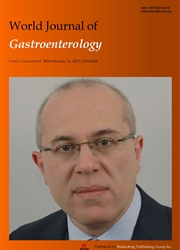

 中文摘要:
中文摘要:
AIM To compare the effects of intravenous routeand peritoneal route on liver targeted uptake andexpression of plasmid delivered by galactose-terminal glyco-poly-L-lysine(G-PLL).METHODS The plasmid pTM/MMP-1 which couldbe expressed in eukaryotic cells was bound to G-PLL,and was then transferred into Wistar rats byintravenous and intraperitoneal injection.Theexpression and distribution of the plasmid wereobserved at different time periods by in situhybridization and immunohistochemistry.RESULTS The plasmid could be expressedsignificantly within 24 h after being transferred invivo by both intravenous and intraperitonealroutes.One week later the expression began todecrease,and could still be observed three weekslater.Although both the intravenous andintraperitoneal route could target-specificallydeliver the plasmid to the liver,the effect of theformer was better as compared to that of the latter.CONCLUSION Intravenous route is better for livertargeted uptake and expression of G-PLL-boundplasmids than the peritoneal route.
 英文摘要:
英文摘要:
AIM:To compare the effects of intravenous route and peritoneal route on liver targeted uptake and expression of plasmid delivered by galactose-terminal glyco-poly-l-lysine (G-PLL).METHODS:The plasmid pTM/MMP-1 which could be expressed in eukaryotic cells was bound to G-PLL, and was then transferred into Wistar rats by intravenous and intraperitoneal injection. The expression and distribution of the plasmid were observed at different time periods by in situ hybridization and immunohistochemistry.RESULTS:The plasmid could be expressed significantly within 24 h after being transferred in vivo by both intravenous and intraperitoneal routes. One week later the expression began to decrease, and could still be observed three weeks later. Although both the intravenous and intraperitoneal route could target-specifically deliver the plasmid to the liver, the effect of the former was better as compared to that of the latter.CONCLUSION:Intravenous route is better for liver targeted uptake and expression of G-PLL-bound plasmids than the peritoneal route.
 同期刊论文项目
同期刊论文项目
 同项目期刊论文
同项目期刊论文
 期刊信息
期刊信息
